How Addiction Impacts Loved Ones and the Path to Healing
September 15, 2025 •Tara Treatment Center l Franklin, Indiana

When alcohol abuse enters a family, its effects ripple far beyond the individual. Spouses, children, and parents often carry emotional, psychological, and financial burdens that can last for years. Families may feel helpless, guilty, or responsible for their loved one’s behavior. In many cases, they unknowingly engage in patterns that protect their loved one from consequences, a dynamic known as enabling. While well‑intentioned, this cycle can make recovery even more difficult.
At Tara Treatment Center, we’ve seen firsthand how alcohol use disorder affects entire households. Drawing on the expertise of Licensed Clinical Addiction Counselor and Licensed Clinical Social Worker Tony Brenner, along with updated research, this article explores the impact of alcohol abuse on families, how enabling behaviors emerge, and, most importantly, how families can begin to heal together.
What Is Alcohol Abuse and Alcohol Use Disorder?
Alcohol is widely accepted in social settings, which makes it challenging to recognize when drinking has crossed the line into abuse. However, alcohol use disorder (AUD) remains a major public health issue:
- In 2024, about 27.9 million people aged 12 and older (roughly 9.7% of this group) met the criteria for AUD.
- Among adults, about 1 in 10 struggles with AUD.
- Although overall alcohol consumption in the U.S. has dropped to a record low of 54%, the severity of misuse among those with AUD remains high.
Prolonged alcohol misuse can cause damage to the brain, heart, liver, pancreas, and immune system. Beyond health, it disrupts relationships, work stability, and emotional well-being for the entire family unit.
How Family Alcohol Abuse Shapes Family Dynamics
When alcohol abuse is present in the home, children and spouses often adopt roles as coping mechanisms. Claudia Black’s classic framework outlines these patterns:
- The Hero Child – Shoulders responsibility, acting as the “fixer” in the family.
- The Scapegoat – Engages in rebellious or destructive behavior to divert attention from the problem.
- The Lost Child – Withdraws and avoids conflict, often feeling invisible.
- The Clown/Mascot – Uses humor to defuse tension and distract from pain.
While these roles may temporarily ease family tension, they often cause long‑term emotional harm. At Tara Treatment Center, our Family Help Program helps identify these unhealthy patterns and provides education and therapeutic support so families can begin breaking the cycle.
Enabling Behaviors and Codependency
Tony Brenner explains, “Enabling behaviors usually begin in an effort by the family member to do damage control. They’re just trying to help, and it’s a completely natural trap to fall into.”
As alcohol misuse progresses, family members may find themselves:
- Covering up mistakes to protect the loved one.
- Taking on financial or legal burdens caused by the addiction.
- Avoiding difficult conversations to keep the peace.
- Assuming responsibility for the person’s recovery instead of encouraging professional help.
Over time, these actions can develop into codependency. Families may lose boundaries and feel consumed by their loved one’s problems. Brenner emphasizes that this is devastating for the family, creating burnout and resentment while preventing real healing.
Our resource on Stop Enabling Behaviors dives deeper into how to recognize and change these patterns.
Healing Starts with Behavioral Change
Recovery is not just about the individual; it’s about transforming the entire family system. At Tara Treatment Center, we encourage families to:
- Acknowledge Enabling Patterns: Recognizing these behaviors is the first step toward change.
- Rebuild Boundaries: Families learn that they cannot control their loved one’s drinking, but they can choose healthier responses.
- Seek Support: Both the individual with AUD and their family members need guidance, whether through Tara’s programs, Al‑Anon, or similar support groups.
Our family programs offer psycho‑educational workshops, therapy sessions, and opportunities for family members to connect virtually or in person. By integrating these approaches into recovery, we help families rebuild trust and foster long‑term healing.
For more on family involvement, see The Family Role in Recovery.
When and How Families Should Intervene
It can be difficult to know when alcohol use has become a serious problem. Families should consider intervention when they notice:
- Increasingly frequent or heavy drinking.
- Neglect of responsibilities at home, work, or school.
- Health or legal issues tied to alcohol use.
- Emotional or physical harm within the family unit.
Tara Treatment Center offers structured care options—detox, residential treatment, outpatient care, and aftercare—that provide a safe, compassionate environment for individuals and their families. Families don’t have to navigate this alone; professional support can guide both the individual and loved ones toward recovery.
For more information on approaches to intervention, read our article on How to Avoid Enabling an Addict in Recovery.
Moving Toward Healing Together
Alcohol addiction is often called a “family disease” because its effects are felt by everyone. Healing begins when families stop enabling destructive behaviors, rebuild boundaries, and seek help together. At Tara Treatment Center, we are committed to helping families recover alongside their loved ones through holistic, compassionate care.
We understand it can be challenging to disconnect yourself from a loved one who is abusing alcohol, which is why we are currently revamping our family program to better support families. In the meantime, we recommend exploring Al‑Anon, a 12‑step‑based support resource for family members of alcoholics. We encourage everyone impacted by addiction to seek support to improve relationships in the family unit.
Get Help Today. Healing for you and your loved ones begins here.
